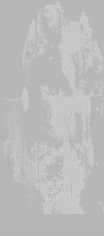

Inversions is a book containing two parallel stories set in a medieval world, one involving the personal physician of a king and the second the tale of a bodyguard of a Protector who has usurped a king. I started this novel with some trepidation, it had something of a mixed reception, though I gave it a chance as Iain Banks is a consistently good author. I'm very glad I did as it is a wonderful, very human novel. It moves at a quite gentle pace compared to his usual science fiction novels, and is a lot less bloody, but that is a strength rather than a weakness. It takes this additional time to fully develop the characters.
The stories are extremely character driven, in fact they are almost entirely so. The main story involving the physician, told by her assistant, a young man utterly enamoured by her. It explores her increasingly close relationship with the king, and the petty jealousies her skills cause amongst the entirely male physicians of the court. Those still followers of very medieval medical methods, from leeches and bloodletting, to other often fatal cures. The tension remains all through the novel, with many of the surrounding individuals being quite put out by both her position and her successes. She is a visitor from a foreign land, and practitioner of a much more modern style of medicine, something of an exile and there are frequent hints that she is more than what she first appears.
The other story is equally interesting, that of a bodyguard in a position of trust, placed to protect a man who had violently taken control of a kingdom. A man who isn't popular with the surrounding monarchies. The bodyguard fears a conspiracy, but can never quite put his finger on what it is. He is close to both the protector and his young son, guarding them as things become more difficult and the onset of war becomes closer to home. At the centre of this story is his relationship with a concubine in the protector's harem. A relationship that reaches a pivotal point towards the end of the novel.
This latter story is included as something of a counterbalance to the first, and is a story of paranoia and betrayal. It is wrapped up skillfully by the narrator, who is unsure which of the offered conclusions is the correct one.
This novel was both enjoyable and enthralling, keeping you guessing until the end, and the strength of its characters and the plot make it very easy to recommend. Unless you spot a few cleverly handled subtle references, only really visible to readers of Banks other novels, you wouldn't consider it a science fiction novel at all and it comes with none of the trappings. It's far closer to a novel of medieval intrigue and something of a murder mystery. A good introduction to Iain Banks, sitting somewhere between his science fiction and his literary fiction, and immediately becoming one of my favourites.